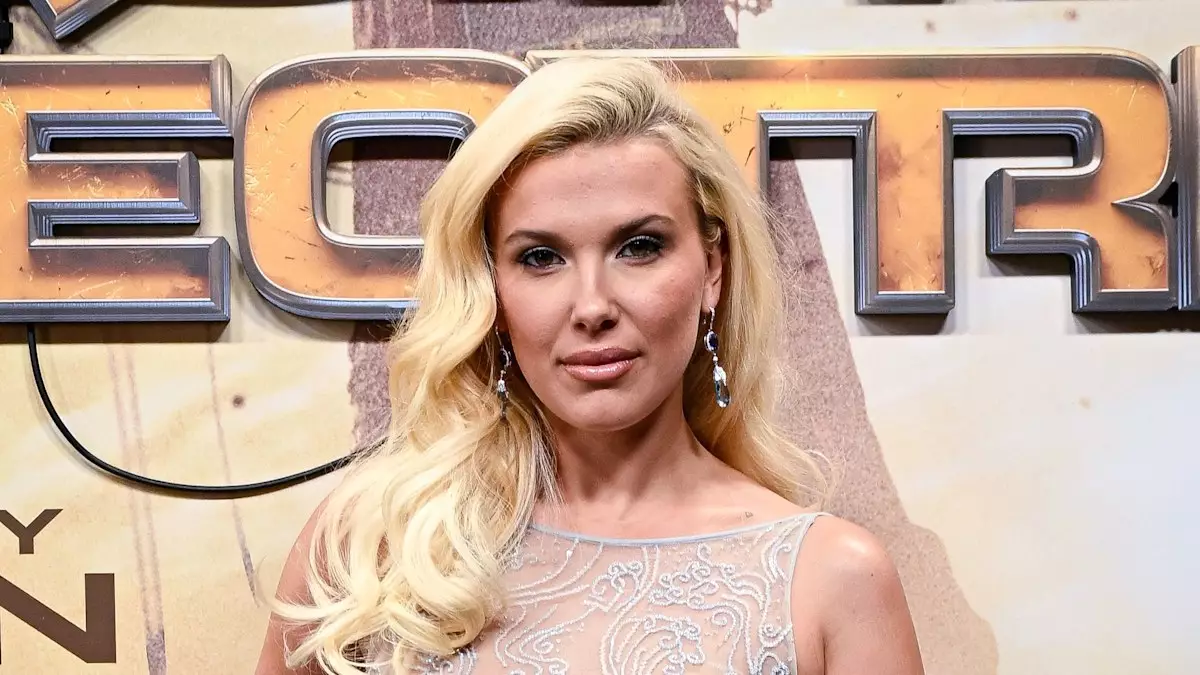Millie Bobby Brown has found herself at the intersection of fame and growing pains, igniting a vital discussion about societal standards and the cruel scrutiny directed towards young women in the public eye. At just 21 years old, she is not just a rising star, but a courageous voice advocating for self-acceptance in a world that often celebrates conformity over individuality. Recently, Brown confronted the troubling comments regarding her appearance, shedding light on the predatory nature of media coverage that not only objectifies but actively participates in bullying, particularly against young women who dare to grow and evolve.
In an emotional Instagram video, Brown expressed her frustration and indignation at how journalists dissect her physical appearance and personal choices. For many, the scrutiny could be overwhelming. She recognizes that this is a pervasive issue extending beyond her personal experience, affecting countless young women who are mirrors of cultural expectations. It’s a poignant reminder that while celebrities are often seen as larger-than-life figures, they, too, experience the pain and humiliation of feeling inadequate under the relentless gaze of public opinion.
The headlines that Brown called out—some steeped in mockery—reflect a troubling trend in modern journalism that prioritizes clicks over compassion. Articles asking “Why are Gen Zers like Millie Bobby Brown ageing so badly?” not only betray a shocking insensitivity but perpetuate unrealistic standards of beauty that society imposes on women. Such titles serve to dehumanize, turning individuals into mere subjects of ridicule rather than respecting them as multifaceted people leading their own lives.
Moreover, the derision she faces isn’t merely from peers or male commentators. The fact that women within the industry join the chorus of critics is particularly disheartening. Brown’s assertion that “some of these articles are written by women” sheds light on the internalized misogyny that runs rampant in society. Women, often expected to support one another, are instead perpetuating a cycle of negativity that may very well stem from their own experiences with societal pressures concerning looks.
Millie’s unapologetic stance on aging reveals a significant truth: growing up should not warrant an apology. In her declaration, “I refuse to make myself smaller to fit the unrealistic expectations of people”, she embodies a revolutionary message that is essential in today’s culture. Women are not static; they are dynamic beings entitled to evolve without the burden of judgment. Brown’s acceptance of her journey and appearance serves as a beacon of hope for young women grappling with similar pressures.
The actress poignantly questions society’s default to negativity when considering the appearance of others. The tendency to criticize, rather than uplift, reflects deeper insecurities within the critics themselves. This phenomenon suggests that the discomfort leading to such disparaging remarks is rooted in a societal narrative that measures worth by superficial standards rather than personal growth and character.
Brown’s resolute call to action—urging individuals to “do better” for every young girl—is a testament to her character and a rallying cry echoed by advocates for mental health and body positivity. This movement is about creating a culture that encourages kindness over cruelty, celebrating diverse forms of beauty, and recognizing that every individual deserves to navigate life’s challenges without the compounded ridicule of societal expectations.
In her powerful address, Brown reminds us that the empowerment of young women is a collective responsibility. It is a shared duty to challenge the insidious nature of gossip and the destructive standards we often impose upon each other. The urgency for a shift in focus—away from criticism and towards encouragement—is not merely timely; it is essential for the well-being of future generations. Millie Bobby Brown’s words are not just a statement against bullying; they are an essential manifesto for change that we must all embrace.

